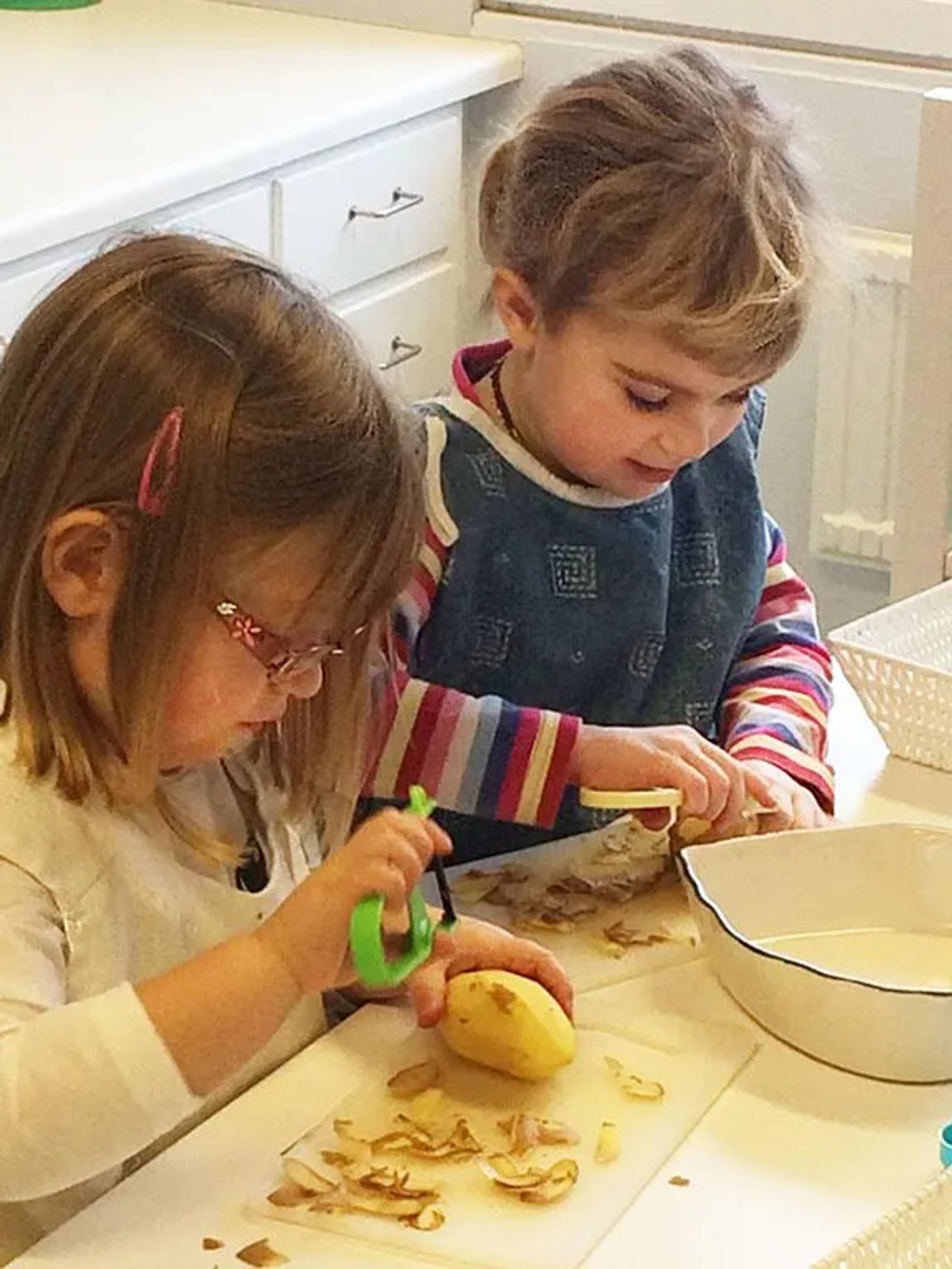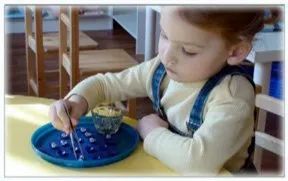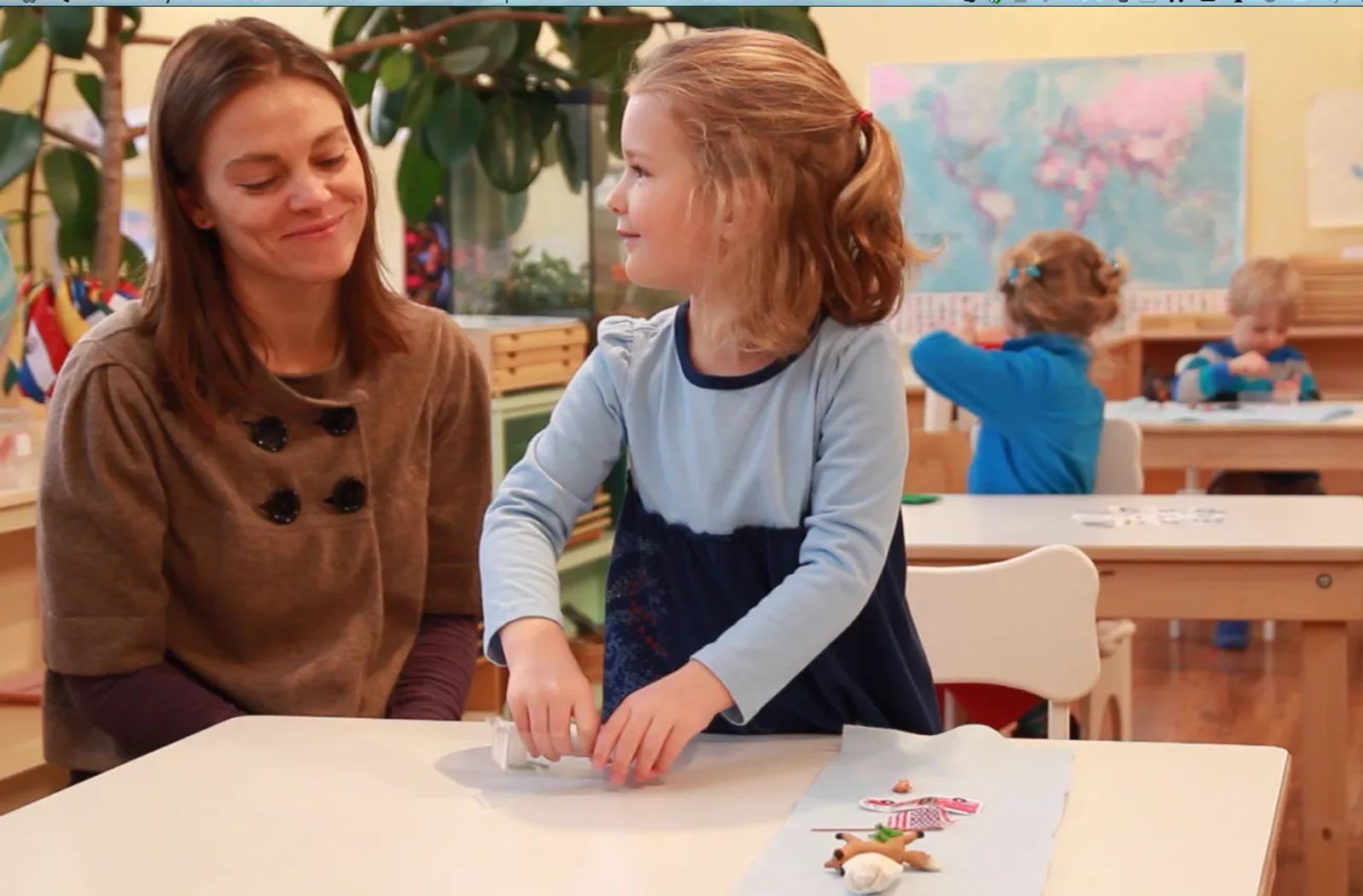Montessori Concept Clip: The Practice of Practical Life Lessons
The Montessori Method of educating was created through an in-depth understanding of child development. Based on her detailed knowledge of the way children naturally learn and grow, Maria Montessori structured her educational method around four main avenues of learning:
- Practical Life
- Sensorial Development
- Development of Language
- Early Preparation of the Mathematical Mind
Practical Life and Motor Education
To understand the avenue known as “practical life,” let’s start with the question: “Why are these everyday tasks, or practical life lessons, so important to the child’s development?”

Between the ages of 2½ and 6 years, children experience specific developmental “sensitive periods.” This means that children will innately seek certain activities or tasks, which “speak” to their inner developmental needs and motivations. Sense of order, coordination of movement, concentration, and independence are all among the young child’s developmental needs. The Montessori Method answers many of these needs through offering practical life lessons or activities.
Many Montessorians believe that practical life lessons are the single most important part of the Montessori environment. Practical life activities connect home and school. What the child learns in the classroom can be used at home. And what is familiar from home, makes the child feel more confident and competent at school. Practical life lessons often give the child her first opportunity to create and follow her own inner sense of order. Children are able to gather their energies and focus on one specific task. Suddenly, the energetic (maybe disruptive) child is calm and has the ability to concentrate fully. These are her first steps toward what Maria Montessori called “normalization.” (Read more about normalization here.)
"Gradually the children begin to concentrate. One day one child, another day two or three children. After they have concentrated the children are different. They become detached and work for themselves. The disorderly children begin to love order. They all become so orderly that disorder is an extraordinary thing." ~Dr. Maria Montessori
Are you looking for ways to help your child develop concentration, coordination, and independence? Practical life lessons are easily carried over from school to home. Here is a sampling of tried-and-true Montessori practical life activities appropriate for children as young as 2½ years old.
Personal Care

- Dressing
- Tying shoes
- Buttons, buckles, snaps
- Hair brushing/ braiding
Hygiene
- Brushing teeth
- Washing hands
- Cleaning fingernails
- Blowing nose

Care of Belongings/Cleaning
- Hanging coat
- Putting lessons/toys/etc. away
- Folding
- Dusting
- Polishing (shoes, mirrors, etc.)
- Sweeping
- Clearing/washing dishes
- Wiping tables
Hand Coordination
- Opening boxes/jars/bottles/bags
- Tweezing small objects such as beans
- Spooning beans from one bowl to another
- Pouring/funneling grain from one vessel to another
- Pouring/funneling water from pitcher to glass
- Sponge squeezing
- Using tongs
- Using a dropper
- Using clothes clips
Show them, but don’t do it for them!
“These children reveal to us the most vital need of their development, saying: 'Help me to do it alone!'" - Dr. Maria Montessori
As always, your method of instructing as the parent or teacher is extremely important. Present or demonstrate new tasks, slowly and methodically. Then observe, without interrupting to correct or compliment the child’s progress. If you observe that the child is using the materials incorrectly, make a mental note to re-demonstrate the task at another time. Honor the child’s need to focus. Give them the time and space to work out the task themselves. Do not jump in and correct or disrupt (unless, of course, things are getting dangerous or destructive, which they shouldn’t because you have carefully prepared the child’s environment. For more on the prepared environment, click here.)

If you observe that the child has mastered the task, make a mental note to demonstrate the next step, but again, at another time. Refrain from interrupting to compliment or praise. Respect these moments of supreme concentration. The child will let you know when she is ready to move on by looking up or around, or simply finishing the task and putting it away. The child who is focused on a lesson or activity is, at that moment, completely self-sufficient. This is the child that is fulfilling her developmental needs.
"We must not interfere with a concentrating child, because something is happening inside that child." ~Dr. Maria Montessori
Need more Montessori? Try our four-week Child Development Course. This on-line course is packed with answers to questions like “Why does my child do that?” “How can we have fewer tantrums at home?” and “What can I do to give my child the best start in life?”

After purchasing, you will receive a confirmation email containing the information you need to access the Child Development Course, materials and forum.
Contact Us to Answer Your Questions! 406-284-2160
Age of Montessori admits students of any race, color, national and ethnic origin to all the rights, privileges, programs, and activities generally accorded or made available to students at the school. It does not discriminate on the basis of race, color, national and ethnic origin in administration of its educational policies, admissions policies, scholarship and loan programs, and other school-administered programs.




















